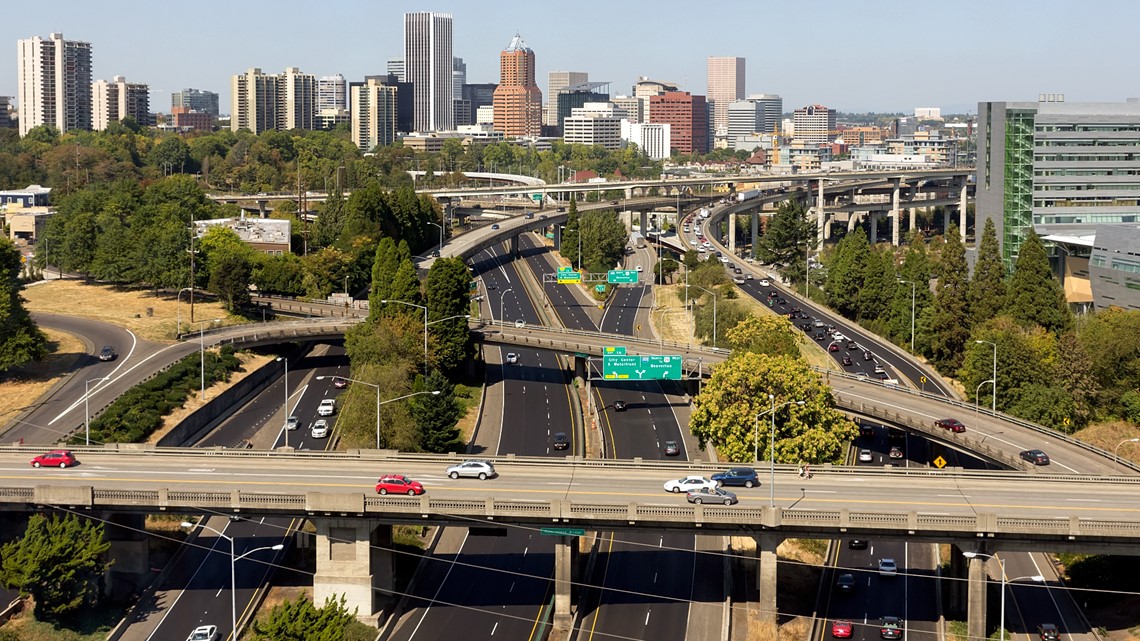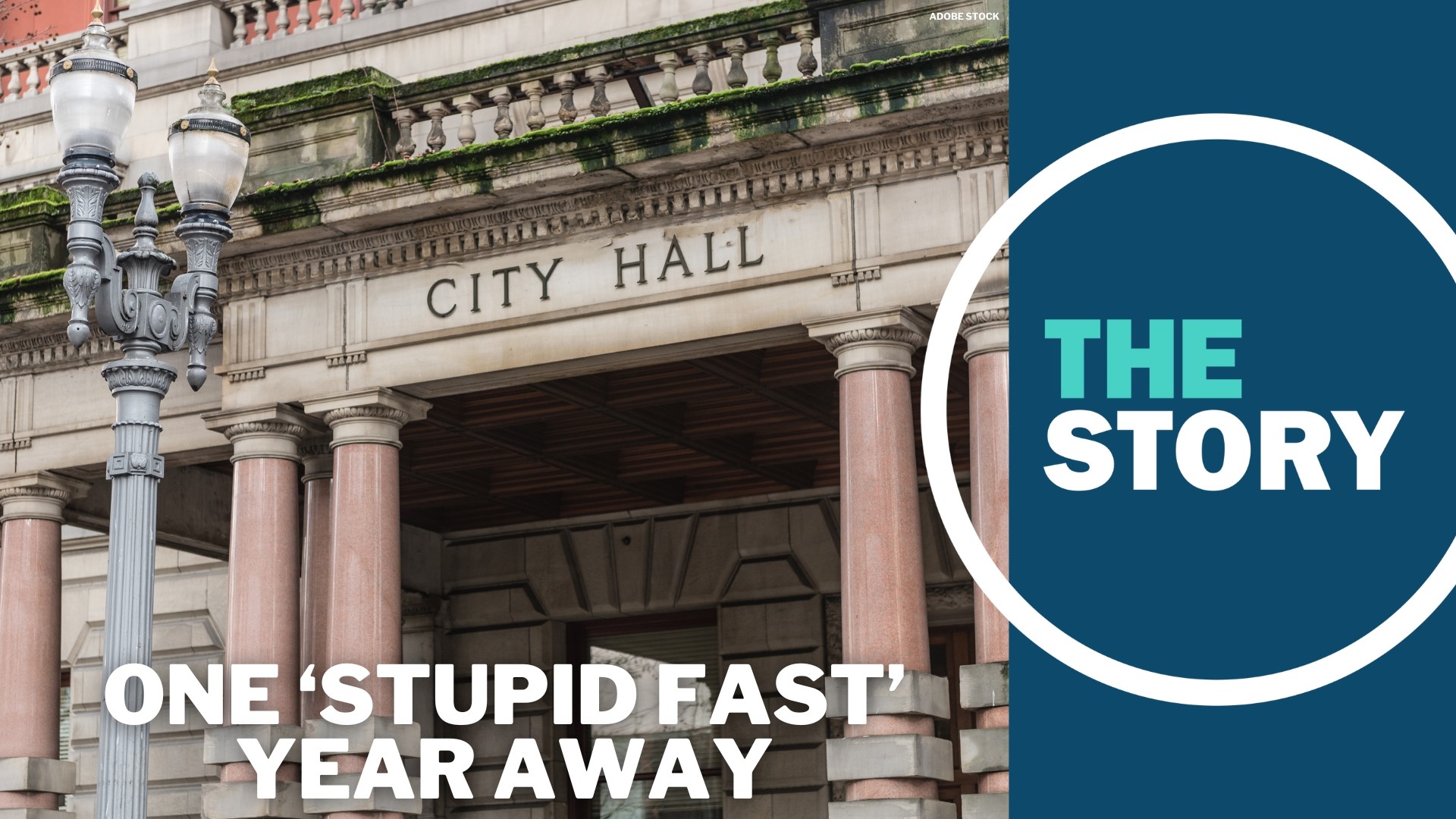PORTLAND, Ore. — In November of 2022, Portland voters clearly signaled that they were sick of the way their city government functions — or fails to function — and approved a measure with a sweeping series of reforms for the city charter. Now we've entered the final year before all of those reforms come to fruition, ideally not all at once.
A volunteer group of citizens created the charter reform plan, which fundamentally changed Portland's form of government for the first time in over 100 years. Some of the changes were designed to simply take the city away from outdated structures, like its commission-style system. But others will be fairly novel, like the use of ranked choice voting to elect council members, three from each of the city's four new districts.
RELATED: Ranked choice voting is included in Portland's charter reform measure. Here's what that means
In early November, The Story's Pat Dooris sat down with the man in charge of the transition: Mike Jordan, Portland's chief administrative officer. He's served previously in several leadership positions at both the state and local level, and now he's been charged with the herculean task of turning Portland's ship of state in a new direction.
The biggest challenge, Jordan admits, is the accelerated timeline. The transition team had about two years to make it all happen.
"I think if you would have come to me a year-plus ago and said, 'We'd like you to restructure city government,' I probably would have said, 'If you give me five years, I can get that done and we can do it really well,'" Jordan said. "So I'm fond these days of saying we're going 'stupid fast' ... however, there are advantages to that too. You know, when you have to make hard decisions about things, sometimes they get put off — and we just don't have that choice."
Jordan pointed to the hours spent in recent city council meetings, poring over the finer points of the reform plan and struggling to make some "challenging" decisions.
"At the end of the day, we now have a framework for city government," he said. "Now we can budget into that framework so that we can hand it over to a new mayor and new city council in January '25."
Part of that debate came to a head in November, when Mayor Ted Wheeler advocated for taking control of the city bureaus from the elected commissioners, something the other commissioners voted down. But as it turns out, Wheeler wasn't the originator of that push to take control — it was Jordan.
So, why was Jordan trying to seize control of the bureaus? He said it was to start some of the structural changes early, by July 1, so the city is ready for 2025.
"The sooner we can begin to transition the way we do business and the way we operate, the more time we'll have to work out those things and find the kinks," Jordan explained. "And to be honest, what doesn't get accounted for very often is that there are 7,000 human beings who live and breathe this city every day and we're changing their world, we're kind of rocking their whole way of doing things, and that takes time for people to make adjustments.
"So the change management work that needs to be done, that's what we were advocating for. We can do it with the commissioners staying in their traditional role, we'll just have to work with them together as a group as we make our decisions and and move through transitioning. So it's doable and we'll make it work."


But it's much easier to "make it work" on paper than it is when the rubber meets the road, something Jordan was trying to insulate against.
"I also try to remind people that are either critical of the council or critical of some decisions that the staff are making that, you know, none of us have ever done this before, and so we're kind of making this up as we go along," he added. "Now, we did talk to a number of other cities — Austin and Minneapolis and Baltimore and a number of others. We have a relationship with the International City Managers Association in Washington, D.C. and the National League of Cities. So we've been collecting lots of examples and data from other places. But until you have to do it yourself and do it for your community, you know it's a daunting task and we're all, you know, when we get to these hard decisions and we haven't done it before, it's hard for folks."
The last time Portland changed its city government like this was in 1913, outside of living memory. That didn't leave Jordan or his colleagues with much of a roadmap beyond what other cities have done.
And for the 7,000 city workers that Jordan mentioned, many may be worrying about the future for their positions — especially since the new form of government is expected to cost significantly more to operate than it does now. Estimates from November show it will cost about $23.9 million per year to run the new government. The current government costs just over $10 million per year.
Jordan couldn't give a definitive answer on whether the new government will be accompanied by layoffs, but suggested that there will at least be some serious reshuffling over the next few years.
"The point of the transition is not to reduce staff. However, having said that, I think over time as we begin to take a more enterprise view of the whole city, I think we will find inefficiencies," he said. "We will find distributions of labor across the whole enterprise that really could stand to be redistributed — and in that work I think we will find efficiencies. I can't name for you which positions we won't need in the future, but I think as a future city administrator and the deputies that are going to be over the service areas, as they work and as an executive team look kind of horizontally across the whole enterprise, I think they will find things that they can make a lot more efficient."
Portland's current 26 offices and bureaus are a bit like the Encyclopedia Britannica, Jordan conjured as an example — the only thing that links them together is the alphabetical order. Because the bureaus have been siloed for so long, they have likely developed mirrored structures and positions internally that may not be needed once they're united under one roof.
"I think we will find that we maybe have too many of one kind of employee, not enough of others. And oh, by the way, even if we think we have the right number, they're distributed badly across the whole enterprise," Jordan added. "And I think when we think in those terms we also will be able to move human resources and be more nimble when we have an emergency in a particular place where we need more human resources for something, and focus on some issue — and we struggle with that today, with the kind of independence of the bureaus and offices."
For decades, city employees have reported to five different people — the elected commissioners who each head a small portfolio of city bureaus, Jordan told Dooris. And those officials aren't accountable to one another; they're accountable only to voters, and only every four years.
"And so we're a place where you might say everybody's in charge and nobody's in charge," Jordan continued, "and so we struggle with things that take multiple bureaus to apply themselves — and to be honest, Pat, I think it's a little difficult for Portlanders to get their heads around the fact that we are a big city and we have big city problems. And almost all the ones we face are multidimensional, and they will take more than one bureau or office or department to solve them. And so we will have to be able to muster multidisciplinary solutions to really complex problems. And I think this change is a big step in that direction."
While Portland's commissioners will remain in control of their fiefdoms through the end of the year, it's still Jordan's goal to transition into the new form of government beginning July 1 in order to stress test the system before the November election and the true effective date of Jan. 1, 2025.

